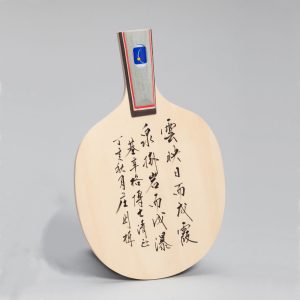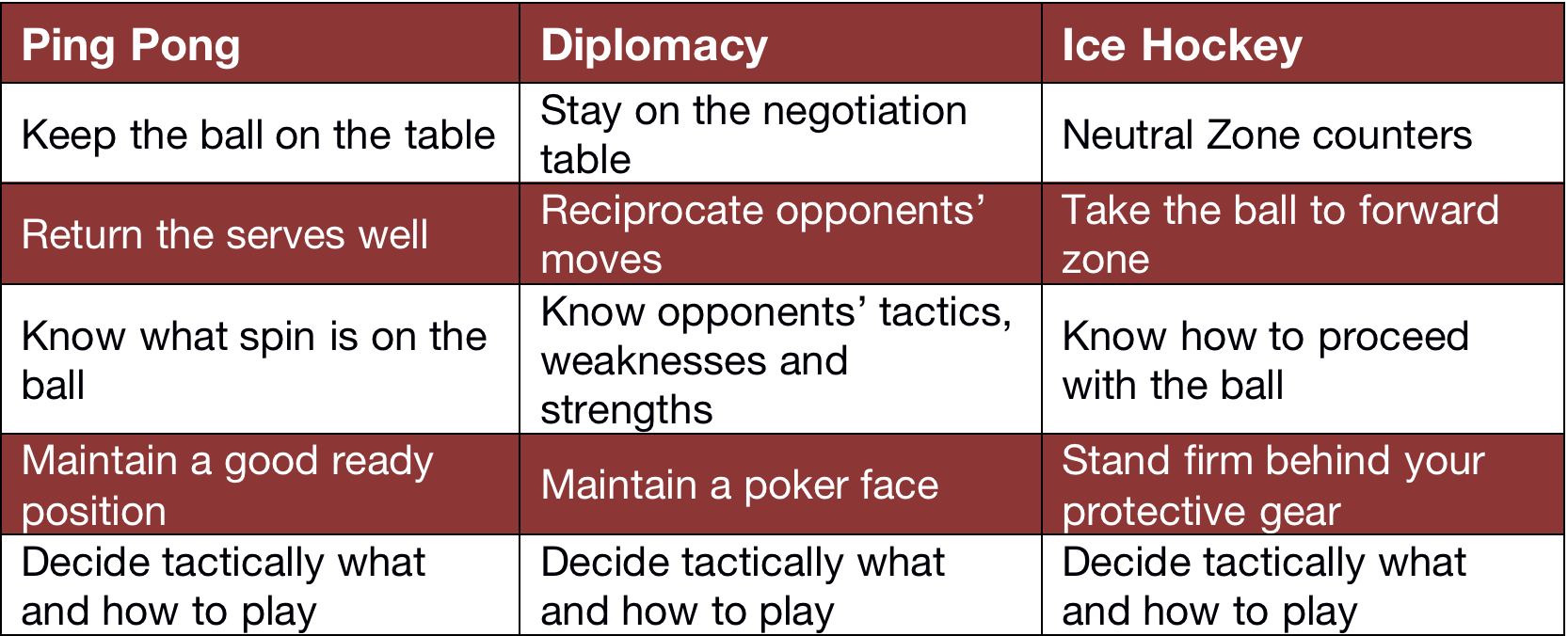As relations between Beijing and Washington are at crossroads and possibly one of its lowest levels for decades, finding or creating cooperation areas and avenues is increasingly becoming a hard task, mission impossible according to some sceptics.
Bilateral relations sunk under the Trump Administration don’t seem to be on a fast recovery despite changes at the White House. The Biden Administration acted faster than expected to rebuff China and adopt anti-Chinese diplomatic rhetoric at the highest levels. Against such a backdrop, the two sides came together for frosty talks in Alaska, the U.S., in March. The freezing conditions were not only in the air though as it was reflected on the negotiation table. As both sides are currently treading on thin ice, one might ponder what avenues are available to free the bilateral relations from these icy (Alaskan) conditions.
As the first serious diplomatic contact between Beijing and Washington in history occurred thanks to an unlikely sport, namely ping pong, in early 1970s, what can create such optimism 50 years after “the ping [was] heard round the world” as the Time magazine’s much quoted headline put it at that time?
Ping Pong Diplomacy - A Gift of Zhuang Zedong to Dr. Henry Kissinger (source: National Museum of American Diplomacy)
Ping pong diplomacy started in 1971 when a Chinese ping pong player, Zhuang Zedong, befriended an American player who missed his bus during a tournament in Japan and was given a lift on the Chinese national team’s bus. This moment led to a giant diplomatic step when Henry Kissinger, the then Assistant to the President of U.S. National Security Affairs, paid two secret visits to Beijing in 1971 to be followed by U.S. President Nixon’s famous visit to China in 1972 for the first ever major diplomatic contact between the two countries since 1949.
There can’t be a more fitting story than seeing the state of current China-U.S. relations within this same framework. The question is, can both sides initiate “Ice Hockey Diplomacy” reminiscent of the “Ping Pong diplomacy” 50 years on? After all, that would serve the golden anniversary of the ping pong diplomacy fairly well.
Ice hockey aptly describes the current state of the China-U.S. relations. It is fast, fluid and an exciting game just as the current state of the Sino-American relations, and quick, clever reaction times are what the sport is all about. The winning team will put the strategies of the game above remonstrations, thus upholding the principles of sportsmanship. The side who has the ability to act fast will either dance on or break the ice as it will have the capacity to bring relations to the brink of a confrontation or a mutually beneficial cooperation that could in turn benefit the whole world.
Ice hockey draws big crowds thanks to its drama and tension just as the current China-U.S. relations have turned the world into spectators to this breathtaking stand-off.
Furthermore, six--a-side aspect of the Ice Hockey encounters is very similar to two diplomatic delegations coming together, more or less six people from each side sitting around a negotiation table as it happened in Alaska (leaving aside translators and aids sitting behind).
In fact, ping pong, ice hockey and diplomacy have much in common when it comes to strategies to apply in games or bilateral relations as the following table illustrates:
Best strategies in Ping Pong, Diplomacy and Ice Hockey
(Illustrations by Pei Pei)
U.S. President Joe Biden is known to be an ice hockey fan and China’s President Xi Jinping is fond of sports. Therein may lie the breakthrough in relations for the apolitical sports arena allows us to step back and find common ground. Sports fans from anywhere in the world share support for the same team in another country, e.g. the English and European football leagues. An ice hockey match to be kicked off by the two presidents would constitute a good response to frosty Alaska.
We are often not aware that we live with another big society. International society of sport, that is. When some of the English Premier League clubs toured China in 2019, thousands of Chinese fans came together to show support for their favorite clubs. A 14-year-old girl dragged her mother from another province to see her favorite English club playing in Shanghai, not to mention many provincial clubs which came in dozens of groups travelling thousands of miles across the vast territory of China.
These fans exercised the very essence of diplomacy by putting the rules and glory of the game above their everyday differences. They regularly engage in the core functions of diplomacy such as representation, communication, and negotiation, helping eliminate hostility in international relations. To this day, shareholders in sports codes share intelligence, communicate on the sports code-wide platforms and relieve themselves from diplomatic drudgery and failures.
Presidents Xi and Biden have a great opportunity to right the pessimistic void following the Alaska talks. They can look to ice hockey as an example of cooperation and to engage a population tired of international political bickering. Sport is a universal language we speak without words. Along with tourism, trade and international education, sport is one of the ultimate manifestations of constructive globalization. Its far reaching and growing influence is benign and based on endeavour and a healthy lifestyle. Sport takes place outside of boardrooms and in camera situations for all the world to see. It makes sense that sport be a diplomatic resource.
There are various levels of interplays between sports and diplomacy. Sports diplomacy comes in when traditional diplomacy falls short on producing solutions.
For example, the following illustration shows how aspiring and forward-coming BRICS countries have been to host some major global sport events, Olympics in particular, contributing to the globalizing and unifying effect of sport.
(Illustrations by Pei Pei)
A closer look at the hosting country statistics indicates that BRICS countries largely dominated organizing the major sports events in the 21st century as the table below shows. By next year, China will have organized three major Olympics, 2008 Summer, 2014 Youth and 2022 Winter Games. Moreover, China successfully hosted the 2008 Olympics against the background of a disastrous earthquake which took lives of nearly 80,000 people, and will be hosting the 2022 Olympics against the backdrop of a devastating global pandemic. Russia hosted 2014 Sochi Winter Olympics and 2018 World Cup. Brazil hosted 2016 Summer Olympics and 2014 World Cup. South Africa was the host country for the 2010 World Cup.
It was ping-pong which created the first people-to-people exchanges between China and the United States. Could it be ice hockey to take it out of its current stalemate? Can it be ice hockey again to change the narratives about Beijing-Washington relations? In other words, can ice-hockey diplomacy replicate ping pong diplomacy in the 21st century?
The leaders of the two countries can use the bladed sticks (used in ice hockey) of their diplomacy to direct the puck in a direction that can benefit the world order in which even the loser of the ice hockey game would qualify as a winner in the eyes and perceptions of the international public opinion. International sports society is waiting to hear the sound of tick-tock: ice hockey diplomacy to kick-off. Will the puck be heard round the world?



